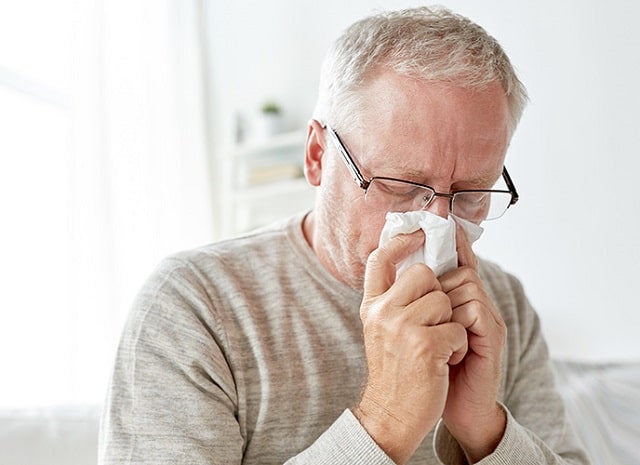
When we think of allergies, we usually think of runny noses, tear-filled eyes, and scratchy throats. But allergies can also interfere with your hearing. Sometimes, allergies only cause hearing problems when an offending allergen gets inside your ear canal. So, how can you tell that a hearing problem is really an allergy problem?
Ear allergies can make conversations sound muffled. Your ears may feel clogged. You may not hear the phone ring or wonder where the birds have gone from your backyard.
It is always best to get checked out by your audiologist at Harbor Audiology to know for sure, but an additional, reliable symptom of allergy-generated hearing problems is bubbling, stuffiness, or popping in your ear. There are causes of these symptoms besides just allergies, and you can't go wrong by going to your Harbor Audiology specialist for a precise diagnosis, but they are a sign that clearing up or preventing allergies will also relieve your hearing issues.
Here are 5 ways anyone can take to treat or prevent allergies.
1. Take An Antihistamine
Allergies occur after part of the immune system known as a mast cell bursts and releases an irritant chemical called histamine. In turn, histamine works with nearby tissues to remove the substance that triggered the allergic reaction.
Histamine makes nerves send itch signals, so you will do your best to get rid of the allergen. It makes tissues swell up around the allergen to isolate it. It triggers the generation of tears, mucus, and phlegm to carry the allergen away.
Stop the histamine, and you stop the allergic reactions it causes. You counteract a histamine with an antihistamine.
The problem with old-style antihistamines like Benadryl is that in the process of blocking the nerve impulses that cause itching, wheezing, sneezing, and inflammation, they can also put you to sleep. Modern antihistamines don't have this side effect. However, there is another way to fight histamine release.
2. Eat Your Fruits And Veggies
Quercetin is a natural antihistamine. It is an antioxidant chemical plants produce to repair sun damage and tissues bitten by bugs. It acts on mast cells more or less the same way as a drug called cromolyn sodium, the active ingredient in NasalCrom. If NasalCrom works on your allergy symptoms, eating more fruits and vegetables will help, too.
Some plant foods contain a lot more quercetin than others. It is especially abundant in capers, dill, cilantro, red onions, radishes, kale, cranberries, lingonberries, and black plums. It is also concentrated in apple peels. A Scottish study found that eating as few fruits and vegetables as one apple a week made a significant difference in allergy symptoms. But one or two servings of the previously mentioned fruits and vegetables every day is much better.
3. If You Wear Hearing Aids, Keep Them Clean And Dry
When you wear hearing aids, and you seem to have allergies in your ears that don't bother you in other ways, the problem could be keeping your hearing aids clean and dry.
A damp hearing aid provides a platform that fungi can use to grow and feed on the debris that accumulates in the ear canal. This happens in about 20 percent of people who use hearing aids. You can have an allergic reaction to the fungus, or you can develop a fungal infection of the ear canal, or both.
Another problem is storing your hearing aids without cleaning them, especially in pollen season. Make a habit of using the cleaning kit your audiologist recommends every day. This way, pollen, fungi, bacteria, and ear canal debris won't accumulate on your hearing aids.
4. Sleep With Your Windows Closed During Your Allergy Season
Sleeping with your windows open on a cool, crisp spring and (if you are fortunate to live where this is possible) summer night feels great—unless you wake up with stuffy ears and a runny nose.
If you have ear allergies, it is best to sleep with your windows closed. Many trees and grasses release their pollen around 4 in the morning. Open windows let pollen drift in, getting inside your ears and nose, sticking to your pillows and bed linens.
This one change can make a huge difference in allergy symptoms. But it is not the only thing you can do to reduce your exposure to the allergens that cause impaired hearing, itchy eyes, sneezing, wheezing, and asthma attacks.
5. Make Your Home And Car As Allergy-Free As Possible
Your vacuum cleaner is your friend when you want to prevent allergies. Vacuuming carpets, upholstery, drapes, and blinds, and dusting your furniture, ceiling fans, and lampshades every week reduce the number of allergens that cause hearing and breathing issues.
Other helpful habits include:
• Most people will keep their pets even if they cause allergies. But vacuum up their hair and dander regularly.
• Comb long-haired pets once or twice a week. Do this outdoors so you won't be adding allergens to indoor air.
• Use a HEPA air filter in rooms where you spend the most time, such as your bedroom or your relaxation area.
• Choose laminate, tile, or wooden floors over carpets.
Helping Hearing And Avoiding Allergies
These five easy steps will reduce allergy-related hearing problems but getting the problem under control often requires professional help. Your Harbor Audiology can confirm that allergies really are the cause of your hearing issues, and whether you could have another treatable issue in addition to them. You will get better faster with an accurate diagnosis and professional medical treatment.
